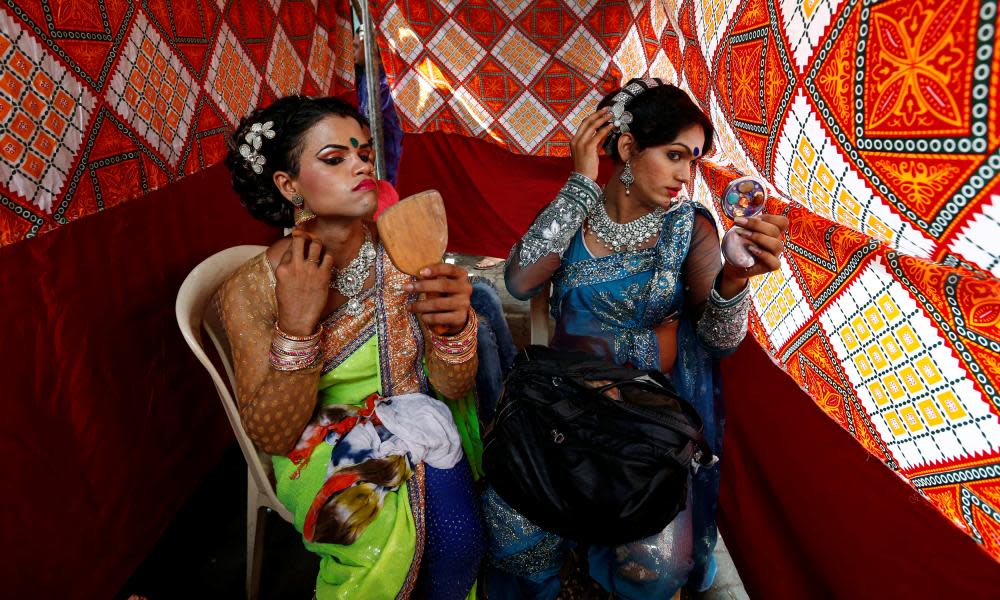Indian state to employ eunuchs as guards at care homes after spate of sexual assaults

A state government in eastern India says it will start employing transgender people and eunuchs as security guards in girls’ and women’s care homes after a spate of widely reported sexual assaults at the centres.
An audit report of more than 100 safe houses in Bihar state in June accused the operators of a facility in Muzaffarpur city of systematically abusing girls being housed there.
Last week, a security guard was arrested in Chapra, a city north of the state capital, Patna, on suspicion of raping a girl at the centre where he worked.
The incidents have sparked ongoing protests in the state and scrutiny of conditions inside the homes, where women and girls deemed vulnerable – including sex workers, sexual assault victims and trafficked women – are housed on remand or for rehabilitation and job training.
The head of Bihar’s social welfare department told the Guardian the state would begin employing transgender people and eunuchs at the centres in response to the assaults.
“The recent incidents of rapes at short stay homes have shocked us,” said the welfare department secretary, Atul Prasad. “So we have planned to employ eunuchs as guards there.”
Eunuchs in south Asian societies fall under the category of “hijras”, a catch-all term for intersex people or those whose genitals do not fit the gender binary. Recently it has also come to include transgender men.
Hijras are celebrated in Hindu texts such as the Mahabharata and the Kama Sutra and also enjoyed influential positions in Mughal courts, including as guards of the emperor’s harem.
An 1897 colonial law declared all eunuchs criminals, forcing them to the fringes, where some still make a living blessing weddings and babies. But many turn to prostitution and begging, sometimes threatening to curse those who do not pay with bad luck or infertility.
Employing hijras as guards would be a win-win situation because they would pose less danger to the women, Prasad claimed, while also finding good jobs outside their traditional industries.
“While on the one hand, the eunuchs will get employment, on the other hand their deployment will strengthen security at short stay homes for girls,” he said.
The idea had won the approval of the Bihar state chief minister, Nitish Kumar, he said.
“Apart from providing us employment, the new job will also give us social recognition,” said Anita Hijra, a transgender person from Patna who spoke to the Guardian after returning from blessing a newborn baby.
“This could be a small initiative but will bring huge change in the society in the long run. We are very happy.”
Reshama Prasad, a member of the state’s Eunuch Welfare Board, also praised the idea. “Let aside employment generation, it will earn them a good social status,” he said. “Normally they are looked down upon by the society.”
Sexual assaults have become a growing concern in Bihar as consciousness about the issue increases and women’s groups become better recognised and more effective.
A state government report found 428 rapes were reported this year to April, meaning at least three reports per day in the state. Around 1,100 rapes have been reported each year in the state the past five years.
This is the second time in the past few years the Bihar government has turned to hijras for help. In 2006, it employed dozens of eunuchs and transgender people to collect outstanding municipal taxes in Patna.

 Yahoo News
Yahoo News 
